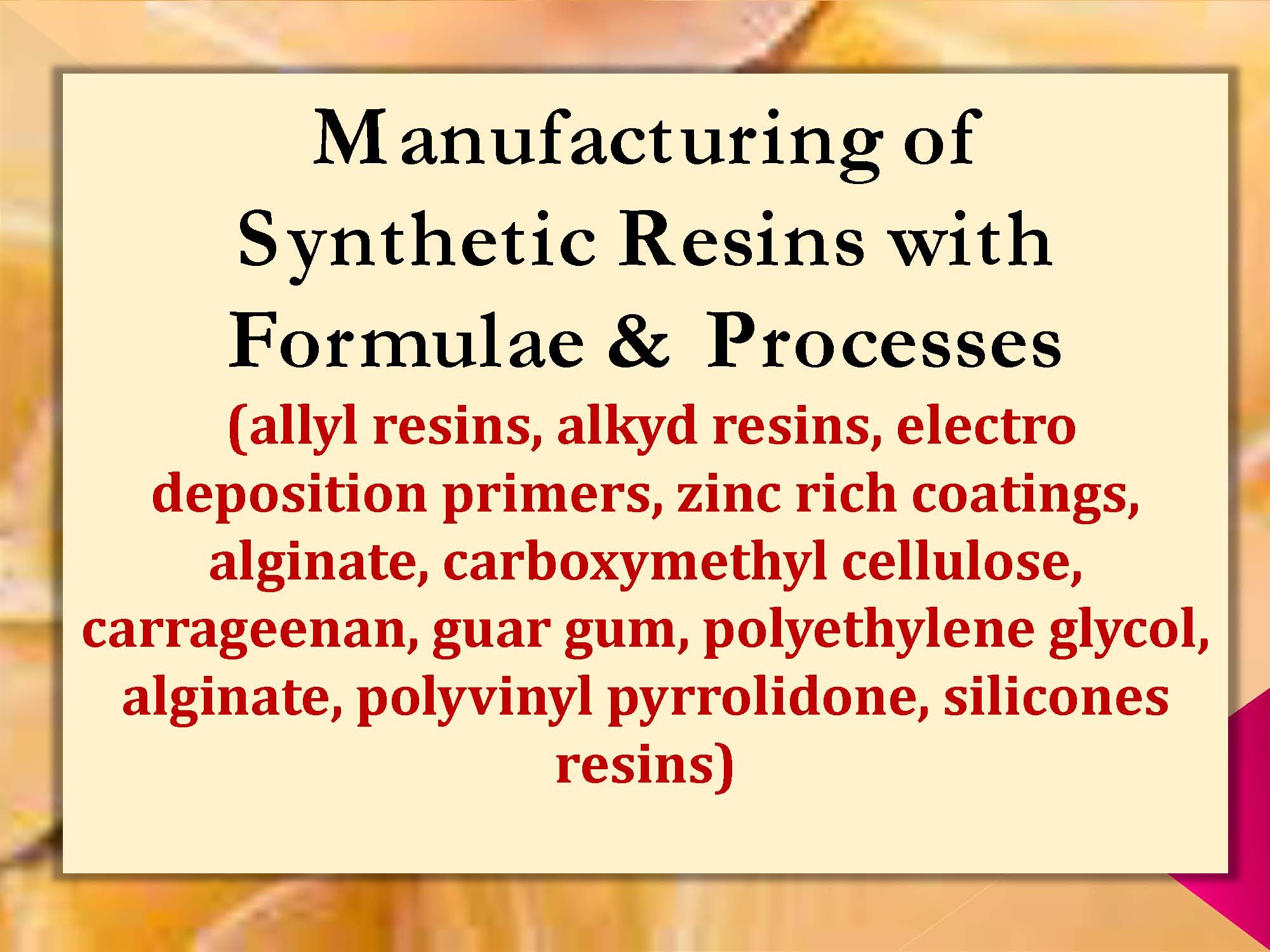
Synthetic resins are essential materials used across many industries. From paints and adhesives to plastics and electronics, these resins serve as key ingredients in a wide range of products. The increasing demand for performance-based and custom solutions has fueled growth in the Synthetic Resins Manufacturing sector. Moreover, with innovations in formulations and eco-friendly alternatives, this business offers strong opportunities for growth, both in domestic and global markets.
Synthetic Resins Manufacturing | Process & Formulations
The process of synthetic resin manufacturing involves chemical reactions that transform raw materials into versatile polymers. These resins can be tailored for specific uses by adjusting the formulation, additives, or curing method. Understanding the manufacturing steps, raw materials, and applications is essential to succeed in this field.
Read Also :Earn Profits from Rice Husk Ash
Types of Synthetic Resins
Synthetic resins fall into different categories, each with unique properties:
-
Alkyd Resins – Used in paints and varnishes
-
Epoxy Resins – Preferred for adhesives and electrical insulation
-
Polyester Resins – Applied in molded components and fiberglass
-
Acrylic Resins – Used in water-based coatings
-
Phenolic Resins – Heat-resistant resins for laminates
-
Polyurethane Resins – Common in foams and elastomers
-
Amino Resins – For wood adhesives and surface coatings
Each type supports multiple industrial applications.
Raw Materials Used
The Synthetic Resins Manufacturing process begins with essential raw materials, such as:
-
Monomers (styrene, acrylic acid, formaldehyde)
-
Polyols and alcohols (glycerol, ethylene glycol)
-
Catalysts and initiators
-
Solvents (water, xylene, or toluene)
-
Additives like fillers, plasticizers, and stabilizers
Moreover, careful selection of these materials determines the final quality and performance of the resin.
Manufacturing Process
Most synthetic resins are created through polymerization, either by batch or continuous methods. The process involves:
-
Charging the reactor – Adding raw materials in correct proportions
-
Heating and reacting – Initiating the polymerization process
-
Monitoring viscosity and pH – Ensuring quality during the reaction
-
Cooling and neutralizing – Stopping the reaction at the desired stage
-
Diluting and filtering – Adjusting resin concentration and purity
-
Packaging – Final product is stored in drums or containers
Moreover, temperature control and mixing speed play key roles in consistency.
Basic Formulation Example
Alkyd Resin (used in decorative paints):
-
Linseed oil – 45%
-
Phthalic anhydride – 20%
-
Pentaerythritol – 15%
-
Xylene – 15%
-
Catalyst – 2–3%
After heating and esterification, the resin is diluted and filtered before storage.
Applications of Synthetic Resins
Synthetic Resins Manufacturing supports a wide range of industries, including:
-
Paints and coatings
-
Construction chemicals
-
Electrical insulation materials
-
Automotive and marine sectors
-
Adhesives and sealants
-
Packaging and printing inks
Moreover, these resins improve product durability, flexibility, and finish quality.
Quality Control Measures
Each batch must meet performance and safety standards. Tests typically include:
-
Viscosity measurement
-
Drying time analysis
-
Acid number and solids content
-
Adhesion and gloss check
-
Storage stability test
Moreover, strict testing ensures product consistency and customer satisfaction.
Safety and Compliance
Safety is critical in Synthetic Resins Manufacturing. Key practices include:
-
Proper ventilation and PPE for workers
-
Fire-resistant equipment and storage
-
Use of flameproof reactors in hazardous zones
-
MSDS documentation for all chemicals
Additionally, manufacturers must comply with:
-
Pollution Control Board norms
-
Hazardous waste handling laws
-
Factory and labor laws
-
Export regulations (REACH, RoHS)
See Also :Small Business Ideas for more Profits
Conclusion
Synthetic Resins Manufacturing is a growing, high-demand industry with diverse applications. From paints to plastics, these resins power essential sectors of the economy. With the right formulation techniques, quality control, and safety systems, manufacturers can meet both market demand and environmental standards. Moreover, innovations in eco-friendly resins and custom blends create new business opportunities for forward-thinking entrepreneurs.





